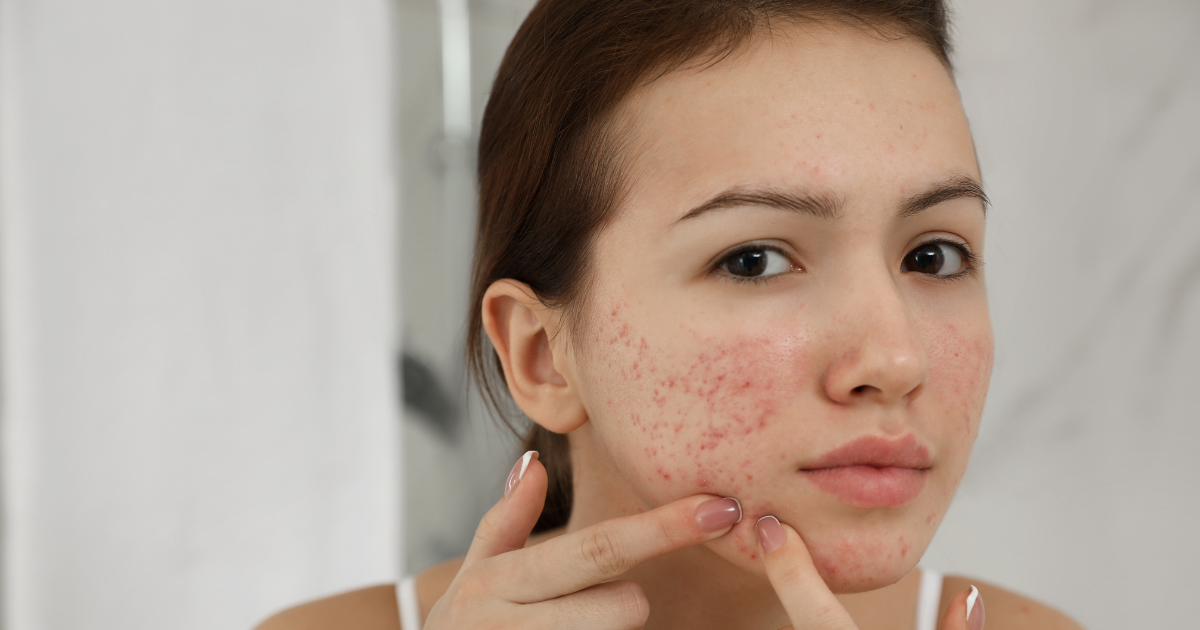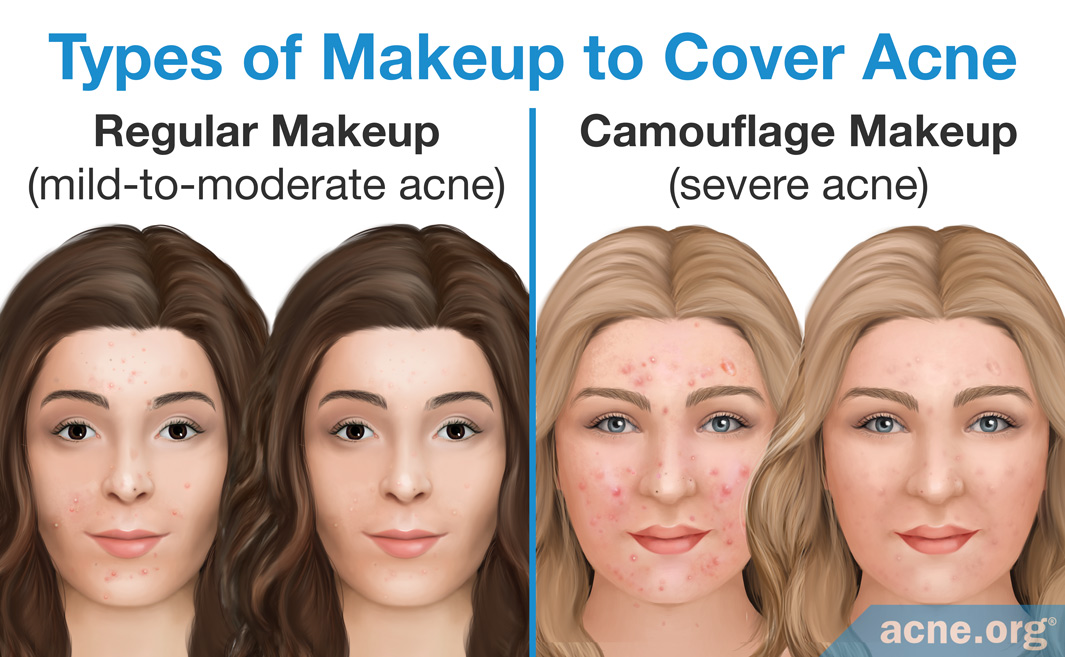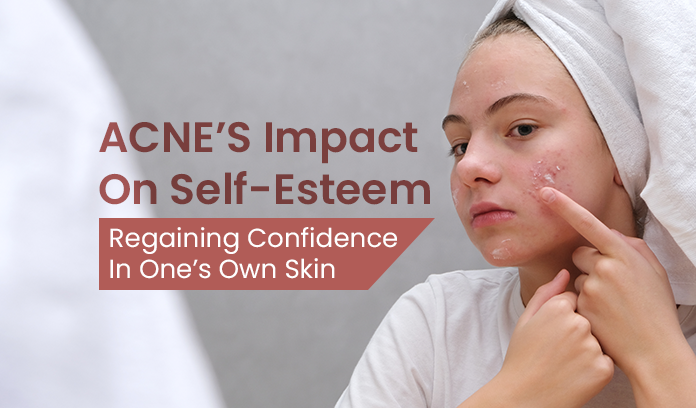Understanding The Complex Relationship Between Makeup And Acne
Understanding the Complex Relationship Between Makeup and Acne
Related Articles: Understanding the Complex Relationship Between Makeup and Acne
Introduction
In this auspicious occasion, we are delighted to delve into the intriguing topic related to Understanding the Complex Relationship Between Makeup and Acne. Let’s weave interesting information and offer fresh perspectives to the readers.
Table of Content
Understanding the Complex Relationship Between Makeup and Acne

Acne, a common skin condition characterized by blemishes, pimples, and inflammation, is often linked to various factors, including genetics, hormones, and even the products we apply to our skin. While makeup can enhance beauty and boost confidence, its impact on acne is a complex and often misunderstood topic. This article delves into the intricate relationship between makeup and acne, exploring the potential causes, preventive measures, and strategies for minimizing breakouts.
The Science Behind Makeup and Acne:
Acne originates from the blockage of hair follicles, leading to inflammation and the formation of blemishes. Makeup, with its diverse ingredients and application techniques, can contribute to this process in several ways:
1. Occlusion and Clogged Pores:
Makeup, particularly heavy foundation and concealers, can create a barrier on the skin, preventing it from breathing and trapping sweat, oil, and dirt within the pores. This occlusion can exacerbate existing acne or trigger new breakouts.
2. Comedogenic Ingredients:
Some ingredients commonly found in makeup, such as oils, waxes, and certain silicones, are known to be comedogenic, meaning they have the potential to clog pores. These ingredients can contribute to the formation of blackheads and whiteheads, which are precursors to more severe acne.
3. Bacterial Growth:
Makeup brushes, sponges, and applicators can harbor bacteria, especially if they are not regularly cleaned. When these bacteria come into contact with the skin, they can contribute to inflammation and acne.
4. Irritants and Allergens:
Some individuals may experience allergic reactions or irritation from certain makeup ingredients, such as fragrances, preservatives, and dyes. These reactions can manifest as redness, inflammation, and even acne.
5. Improper Application and Removal:
Applying makeup in thick layers or failing to remove it thoroughly at the end of the day can trap impurities and contribute to acne. Similarly, using dirty brushes or sponges can introduce bacteria and exacerbate existing breakouts.
Minimizing Acne Risk with Makeup:
While makeup can be a potential trigger for acne, several strategies can mitigate its impact:
1. Choose Non-Comedogenic Products:
Opt for makeup labeled as "non-comedogenic" or "oil-free," as these products are formulated to minimize pore blockage.
2. Prioritize Water-Based Formulas:
Water-based makeup tends to be lighter and less likely to clog pores compared to oil-based products.
3. Seek Lightweight Coverage:
Choose lightweight foundations and concealers that provide coverage without feeling heavy on the skin.
4. Regularly Clean Brushes and Applicators:
Wash makeup brushes and sponges regularly with a gentle cleanser to prevent bacterial growth.
5. Remove Makeup Thoroughly:
Thoroughly remove all makeup before going to bed using a gentle cleanser and a soft cloth or cotton pad.
6. Consider Mineral Makeup:
Mineral makeup, made from naturally occurring minerals, is often considered less likely to clog pores and trigger acne.
7. Patch Test New Products:
Before using a new makeup product, perform a patch test on a small area of skin to check for any allergic reactions.
8. Consult a Dermatologist:
For persistent acne, seeking professional advice from a dermatologist is recommended. They can diagnose the underlying cause of your acne and recommend personalized treatment options.
FAQs on Makeup and Acne:
Q: Can I use makeup if I have acne-prone skin?
A: Yes, but it is important to choose non-comedogenic, water-based products and apply them sparingly.
Q: Is it safe to use makeup on active acne?
A: It is generally advisable to avoid applying makeup directly on active acne lesions as it can further irritate the skin. Focus on spot treatment and allow the lesions to heal.
Q: Does makeup cause cystic acne?
A: While makeup itself does not directly cause cystic acne, it can contribute to the formation of blackheads and whiteheads, which can eventually develop into cystic acne if left untreated.
Q: What are some common comedogenic ingredients in makeup?
A: Some common comedogenic ingredients include coconut oil, cocoa butter, lanolin, and certain types of silicones.
Q: What are the best makeup brands for acne-prone skin?
A: Many brands offer products specifically designed for acne-prone skin. Some popular options include CeraVe, La Roche-Posay, and Clinique.
Tips for Makeup Application with Acne-Prone Skin:
1. Start with a Clean Canvas:
Always cleanse and moisturize your skin before applying makeup to create a smooth base.
2. Use a Primer:
A primer can help create a barrier between your skin and makeup, minimizing the risk of clogging pores.
3. Apply Makeup Sparingly:
Apply makeup in thin layers, focusing on areas that require coverage.
4. Blend Carefully:
Properly blend makeup into the skin to ensure a smooth and natural finish.
5. Avoid Heavy Coverage:
Opt for light to medium coverage foundations and concealers.
6. Use a Clean Sponge or Brush:
Always use clean brushes and sponges to prevent bacterial contamination.
7. Remove Makeup Before Bed:
Thoroughly remove all makeup before going to bed to allow your skin to breathe and regenerate.
Conclusion:
The relationship between makeup and acne is complex and multifaceted. While makeup can contribute to acne in certain cases, it is not necessarily a direct cause. By understanding the potential risks and implementing preventive measures, individuals with acne-prone skin can enjoy the benefits of makeup while minimizing the risk of breakouts. Remember, choosing the right products, applying them correctly, and maintaining good hygiene practices are essential for achieving a healthy and radiant complexion. Consulting a dermatologist for personalized advice and treatment is crucial for managing acne and achieving optimal skin health.








Closure
Thus, we hope this article has provided valuable insights into Understanding the Complex Relationship Between Makeup and Acne. We appreciate your attention to our article. See you in our next article!
You may also like
Recent Posts
- Mastering The Art Of Eye Makeup: A Comprehensive Guide To The Color Wheel
- The Art Of Enhancement: A Comprehensive Guide To Makeup
- The Ultimate Guide To Makeup Bags For Travel: Organization, Style, And Essential Considerations
- A Guide To Makeup At Walmart For Kids: Exploring Options And Considerations
- A Comprehensive Guide To Makeup Brands Beginning With C: From Classic To Cutting-Edge
- The Ultimate Guide To Finding The Perfect Makeup Chair: A Comprehensive Look At Kmart’s Offerings
- Navigating The World Of Makeup For Sensitive Skin: A Guide To Finding The Perfect Fit
- The Ever-Evolving Canvas: Exploring Makeup Designs Through The Decades
Leave a Reply